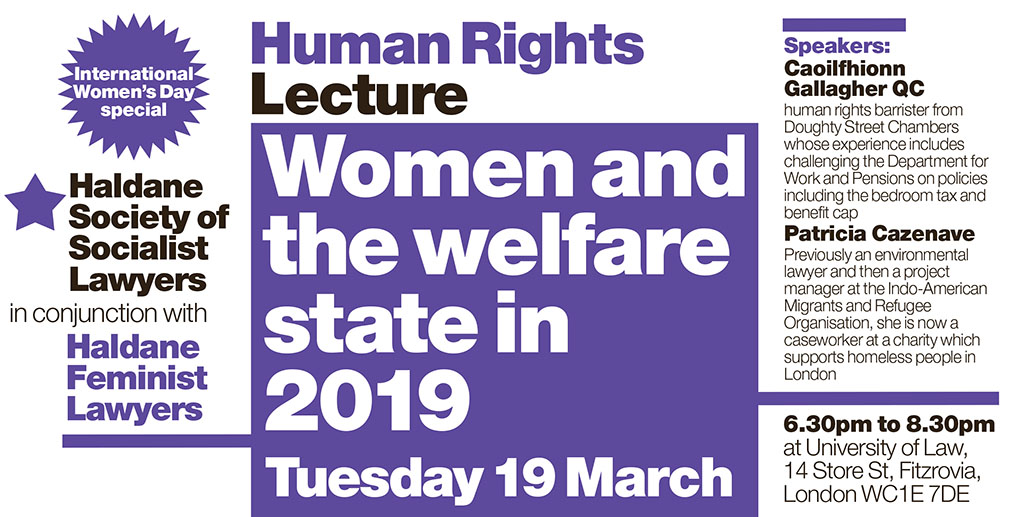1. The Haldane Society of Socialist Lawyers denounces Turkey’s invasion of North East Syria, which constitutes a gross violation of international law by the Turkish Republic and its officials. The Haldane Society also condemns in the strongest possible terms the facilitation of this invasion by the U.S. and the complicity of E.U. states, including the U.K.
2. On Sunday 6th October 2019, the White House issued a statement announcing its withdrawal of U.S forces from the Turkey-Syria border and effectively giving the green light to Turkey’s “long-planned operation into Northern Syria”, following a phone conversation between U.S President Donald Trump and President Recep Tayyip Erdogan of Turkey. On Wednesday the 9th of October 2019, Turkey began its assault.
3. Kurdish forces have led the fight to defend the world against the brutal facism of ISIS. 11,000 predominantly Kurdish women and men gave their lives in this struggle against terrorism, as did 10 British citizens, and 24,000 were injured. Kurdish organisations have established one of the most peaceful regions in the middle east – the Autonomous Administration of North East Syria (also known as Rojava); a secular multicultural democracy based on principles of direct democracy, pluralism, women’s liberation, ecological justice and cooperative economy.
The crime of aggression
4. Turkey’s invasion of Rojava is a violation of the prohibition of the use of force set out in Article 2(4) of the Charter of the United Nations, which is not only a treaty obligation but is also a principle of customary international law. There is no exception to the prohibition of the use of force under the right to self-defense in these circumstances.
5. When Turkey invaded Afrin in March 2018, the Turkish presidential spokesman maintained Turkey was exercising its right to self-defense pursuant to Article 51 of the Charter of the United Nations, claiming there had been 700 attacks against Turkish cities. This claim was later reported to be unfounded.
6. Likewise, there is no evidence to support Turkey’s assessment of the present situation. Erdogan says Turkey is acting to prevent the creation of a ‘terror corridor’, claiming the people’s protection units – the YPG and YPJ – are a terrorist organisation. On the contrary, these are the forces that have sacrificed the most to both ideologically and militarily defeat terrorism in the region. Moreover, far from launching any attacks against Turkey, in August 2019 the Kurdish-led Syrian Democratic Forces (SDF), implemented a demilitarised ‘peace corridor’ along the Turkish-Syrian border in response to Turkey’s supposed security concerns – pulling back their weapons and forces by 5 to 14 kilometers along the border area and allowing U. S and Turkish patrols in good faith.
7. In the absence of an armed attack against Turkey, Turkey’s military offensive constitutes a violation of Article 2(4) of the Charter. The pretext of preventing the creation of a ‘terror corridor’ does not legitimise Turkey’s military offensive under Article 51 of the Charter, as customary international law only recognises anticipatory self-defence as lawful when an attack is imminent.
8. Turkey’s use of force in invading Rojava in a manner inconsistent with the Charter of the United Nations therefore constitutes an act of Aggression as defined in Article 1 and 3(1) of UN General Assembly resolution 3314 (XXIX) and within the jurisdiction of the International Criminal Court (ICC). Even though Turkey is not a state party to the Rome Statute of the ICC, the ICC’s jurisdiction over the crime of Aggression allows the UN Security Council to refer a situation for investigation by the prosecutor under Article 13 of the Rome Statute of the ICC.
War Crimes, Genocide and Crimes Against Humanity
9. Erdogan has declared that his intention in invading Rojava is to establish a “safe zone” stretching 50 miles from the Turkish border, as far as Raqqa and Deir al-Zour (the full extent of the Kurdish-controlled region), in order to resettle millions of Arab-Syrian refugees. This would constitute a dramatic demographic change in the historically Kurdish and multi-ethnic region. There is substantial evidence to suggest that Erdogan’s real intention is to carry out ethnic cleansing and genocide against Kurdish, Yezidi and Christian populations, as Genocide Watch has recently warned. Such actions would constitute as crimes under Articles 6 and 7 of the Rome Statute of the International Criminal Court.
10. The invasion of the Afrin canton in 2018 and its subsequent occupation by Turkish forces and Turkish controlled, armed and funded jihadist groups has forcibly displaced thousands and led to atrocities such as kidnapping, extortion, murder, torture, rape, gender-based violence, which Amnesty International has denounced as war crimes, per the definition in Article 8 of the Rome Statute. There is no reason to suggest that Turkey has different plans for the rest of Rojava.
Erga Omnes Obligation
11. Turkey’s invasion is unquestionably an act of aggression and runs a grave risk of causing genocide, crimes against humanity and war crimes. The invasion as such constitutes the violation of erga omnes obligations under international law. This means that the legal interests of all states are engaged. It also places a legal obligation on all states not to recognise illegal situations such as invasion and occupation stemming from breaches of erga omnes obligations or to render aid or assistance in maintaining the situation created by the breach.
12. The Haldane Society of Socialist Lawyers therefore calls upon the UK government to fulfil its obligations under international law not to recognise or render aid or assistance in Turkey’s invasion of Rojava by immediately:
i. Ending all weapons sales and exports from the UK to Turkey
ii. Ending all UK provision of security and intelligence to Turkey
iii. Using its position at the UN Security Council to achieve a no-fly zone over Rojava as well as sanctions, particularly an arms embargo, against Turkey.
iv. Ending the EU-Turkey deal, which provides billions of euros to the Turkish state and enables Erdogan to weaponise the suffering of millions of displaced people in attempts to blackmail the EU into complicity with its invasion.









